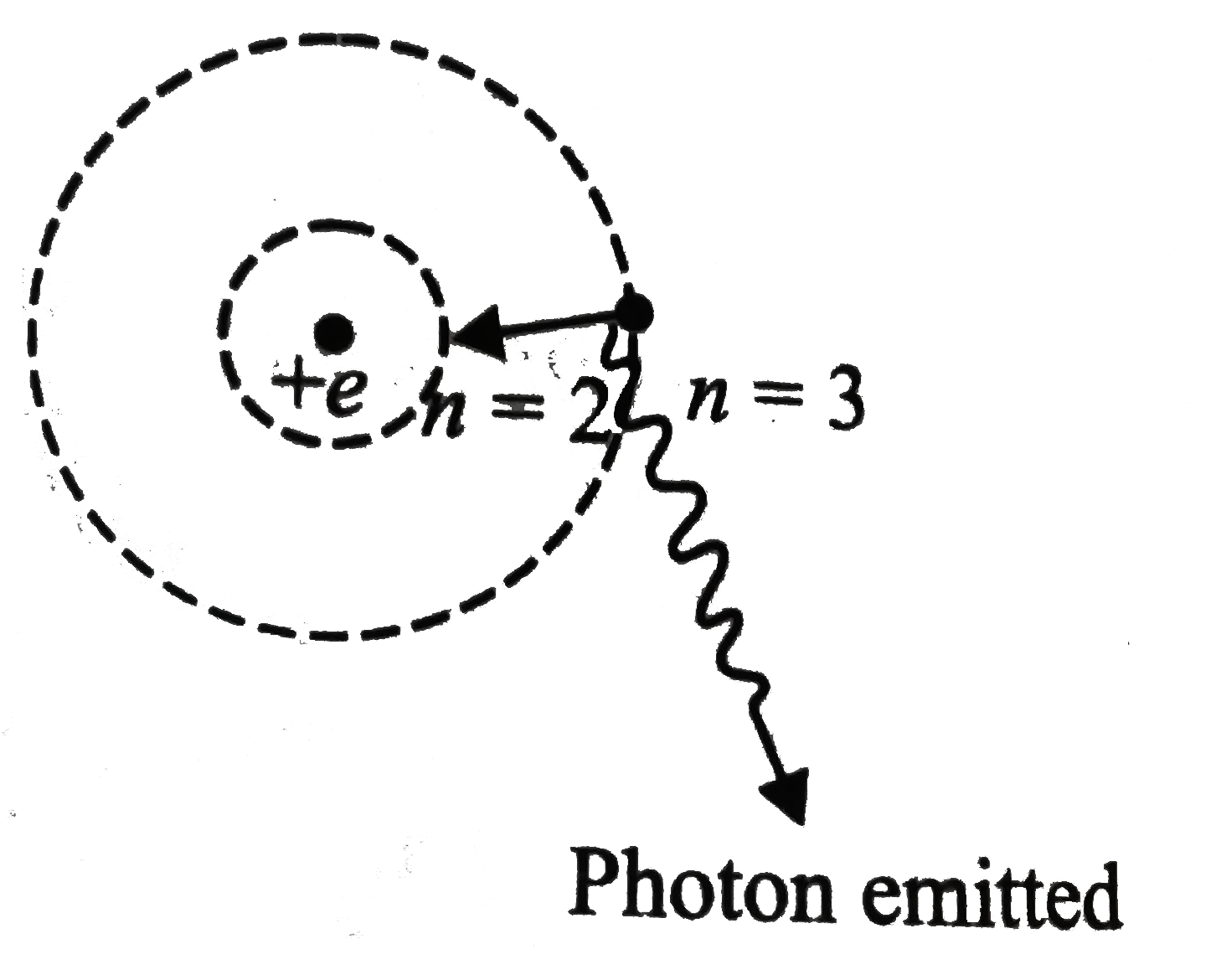A single electron orbit around a stationary nucleus of charge +Ze where Z is a constant and e is the magnitude of the electronic charge. It requires47.2eV to excite the electron from the second bohr orbit to the third bohr orbit. Find
(i) The value of Z
(ii) The energy required by nucleus to excite the electron from the third to the fourth bohr orbit
(iii) The wavelength of the electronmagnetic radiation required to remove the electron from the first bohr orbit to inlinity
(iv) The energy potential energy potential energy and the angular momentum of the electron in the first bohr orbit
(v) The radius of the first bohr orbit (The ionization energy of hydrogen atom =13.6eV bohr radius =5.3×10−11matre velocity of light =3×108m/sec planks 's constant =6.6×10−34 jules - sec )
340 eV
−340eV
680 eV
−680eV
The correct Answer is:A
Step by step video & image solution for A single electron orbit around a stationary nucleus of charge + Ze where Z is a constant and e is the magnitude of the electronic charge. It requires47.2 eV to excite the electron from the second bohr orbit to the third bohr orbit. Find (i) The value of Z (ii) The energy required by nucleus to excite the electron from the third to the fourth bohr orbit (iii) The wavelength of the electronmagnetic radiation required to remove the electron from the first bohr orbit to inlinity (iv) The energy potential energy potential energy and the angular momentum of the electron in the first bohr orbit (v) The radius of the first bohr orbit (The ionization energy of hydrogen atom = 13.6 eV bohr radius = 5.3 xx 10^(-11) matre velocity of light = 3 xx 10^(8) m//sec planks 's constant = 6.6 xx 10^(-34) jules - sec ) by Physics experts to help you in doubts & scoring excellent marks in Class 12 exams.
Updated on:21/07/2023Topper's Solved these Questions
- ATOMIC PHYSICSBOOK - CENGAGE PHYSICS ENGLISHCHAPTER - ATOMIC PHYSICSEXERCISE - ddp.4.3
15 Videos
- ATOMIC PHYSICSBOOK - CENGAGE PHYSICS ENGLISHCHAPTER - ATOMIC PHYSICSEXERCISE - dpp-4.1
15 Videos
- ALTERNATING CURRENTBOOK - CENGAGE PHYSICS ENGLISHCHAPTER - ALTERNATING CURRENTEXERCISE - Single Correct
10 Videos
- CAPACITOR AND CAPACITANCEBOOK - CENGAGE PHYSICS ENGLISHCHAPTER - CAPACITOR AND CAPACITANCEEXERCISE - Integer
5 Videos
Similar Questions
A single electron orbits around a stationary nucless of charge +Ze where Z is a constant and e is the magnitude of electronic charge ,if respuires 47.2 e

is excite the electron from the second bohr orbit to the third bohr orbit
a. Find the value of Z
View SolutionA single electron orbits around a stationary nucleus of charge +Ze, where Z is a constant and e is the electronic charge. It requires 47.2eV to excited the electron from the second Bohr orbit to the third Bohr orbit. Find (i) the value of Z, (ii) the energy required to excite the electron from the third to the fourth Bohr orbit and (iii) the wavelength of the electromagnetic radiation radiation to remove the electron from the first Bohr orbit to infinity.
View Solution
Knowledge Check
The de-Broglie wavelength of an electron in the first Bohr orbit is
Aequal to one- fourth the circumference of the first orbitBequal to half the circumference of first orbitCequal to twice the circumference of first orbit.Dequal to the circumference of the first orbit.
A single electron orbits a stationary nucleus of charge +Ze, where Z is a constant and e is the magnitude of electronic charge . It requires 47.2eV to excite electron from second Bohr orbit to third Bhor orbit . Find
a the value of Z
b the energy required to excite the electron from the third to the fourth Bohr orbit.
c. the wavelength of electromagnetic rediation required to remove the electron from the first Bohr orbit to infinity.
d Find the KE,PE, and angular momentum of electron in the first Bohr orbit.
e. the redius of the first Bohr orbit
[The ionization energy of hydrogen atom =13.6eV Bohr radius =5.3×10_11m, "velocity of light" =3×10−8jms−1, Planck's constant =6.6×10−34j−s]
View SolutionCalculate angular momentum of an electron in the third Bohr orbit of hydrogen atom.
View SolutionAccording to Bohr's theory the angular momentum of an electron in the fourth orbit is
View SolutionA single electron ion has nuclear chrage +Ze where Z is atomic number and e is electronic charge. It requires 16.52eV to excite the electron from the second Bohr orbit to third Bohr orbit. Find
(a) The atomic number of element?
(b) The energy required for transition of electron from first to third orbit?
(c ) Wavelength of photon required to remove electron from first Bohr orbit to infinity?
(d) The kinetic energy of electron on first Bohr orbit?
View SolutionAccording to Bohr's theory, the angular momentum of electron in the fifth Bohr orbit is:
View SolutionThe ratio of the energy required to remove an electron from the first three Bohr's orbit of Hydrogen atom is
View SolutionThe value of orbit angular momentum of an electron in the 3rd Bohr orbit of hydrogen will be
View Solution
